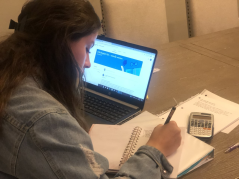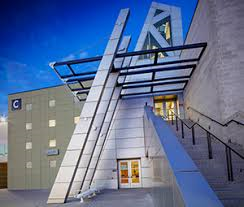College of Southern Nevada is one of the many schools around the world forced to shutter and suspend in-person classes, graduations, ceremonies and all other large gatherings in efforts to slow the spread of COVID-19.
CSN President Federico Zaragoza released an email to students and staff stating, “In response to Gov. Steve Sisolak’s announcement, Nevada System of Higher Education has directed that all non-essential employees and operations at all system institutions shall close effective at noon on March 18, 2020.”
Zaragoza added, “Extending remote instruction through the end of the semester was not an easy decision but it is the right one in this time of uncertainty. At this point we are unsure whether we will conduct the summer session remotely, but please know that if the decision is made to do so, it will be made with the safety and well-being of our students, faculty and staff in mind.”
Currently, CSN is slated for on-line instruction through June 30, according to the President’s office.
CSN offers several remote services for students: virtual tutoring, online technical support, financial aid and counseling to assist students during this difficult time.
Extended efforts have been made by CSN in preventing the spread of coronavirus.
Assistant Director of Public and Media Relations Richard Lake said, “The College has been doing a deep cleaning of all areas of CSN spaces, including disinfecting all areas of buildings as well as deep cleaning of floors and carpet. These efforts will continue upon the reopening of campuses, sites and centers. CSN will follow all recommended guidelines and protocols to ensure the health and safety of our faculty, staff, students, and community is provided.”
Lake added, “By closing campuses, we anticipate this will greatly deter the spread of the virus. Our campuses are large public facilities with greater than 1.6 million square feet. In addition to our students being remote, the vast majority of our faculty and staff are not coming to campus right now but working remotely.”
As CSN students acclimate to remote learning, many are faced with dense online workloads to compensate for the lack of in-person interaction in classroom settings.
Daniel Gutierrez, ASCSN student government president, said, “Most of the assignments we had were easily transitioned online. One class added extra components to make up for the lack of lecture.”
Students who take the majority of classes online seem less impacted.
 Natalee Bakch, a full-time online student, said she isn’t negatively affected. “I could see how it has been affecting other people. It almost feels like school is getting more intense since some teachers feel like they must make up in-class interaction with more work.”
Natalee Bakch, a full-time online student, said she isn’t negatively affected. “I could see how it has been affecting other people. It almost feels like school is getting more intense since some teachers feel like they must make up in-class interaction with more work.”
CSN student Allie Seifert said, “The transition itself to my classes going online has not affected me as I am familiar with taking online classes but the campus being closed does affect me. I do have Wi-Fi and a computer at home but I often like to go to the library to be able to better focus. Also, with the computer labs and tutoring being closed I am unable to get face-to-face help and I do not find it equivalent to online tutoring.”
Gutierrez said student government is developing a resource guide including low cost or free-of-charge services for students in need: local pantries, medical outreach and supplies.
ASCSN, Student Life and Leadership Development and CSN Foundation are collaborating to raise money for the Student Emergency Fund and working to spread awareness to ensure eligible students apply and receive financial help.
COVID-19 continues to cripple communities, schools and the economy as this virus spreads. By enforcing guidelines provided by the Centers for Disease Control and Prevention, Southern Nevada Health District and World Health Organization can minimize the number of people who become infected and fall ill from this deadly virus.




